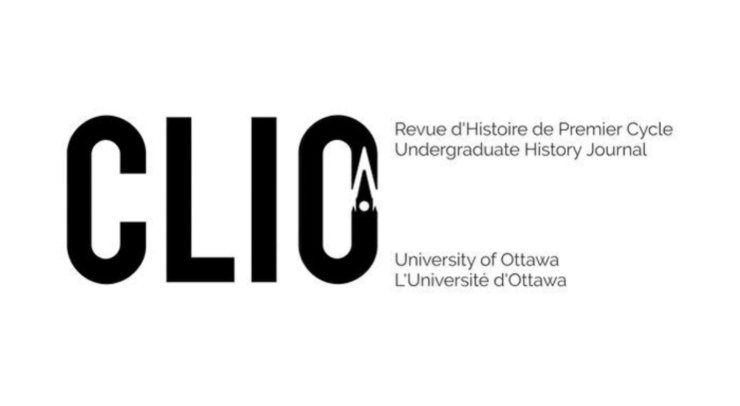Agreement outlines accountability measures, rules for financial management
The University of Ottawa administration has signed an official agreement with the University of Ottawa Students’ Union (UOSU), recognizing them as “the only student association authorized to represent all undergraduate students,” according to an email sent out to students signed by vice-president academic, David Graham.
“The University of Ottawa is eager to work with the UOSU’s executive committee and board of directors to ensure that your fees are properly managed,” the email reads.
Per Graham, the agreement will be implemented by May 1, 2019 but the duration of the agreement is listed as April 8, 2019, until May 1, 2024.
Graham also congratulated the UOSU on their selection and thanked the outgoing Student Federation of the University of Ottawa (SFUO) for their services, which he says they will continue to provide until April 30.
Start-up costs and collection of student levies
The university has agreed to provide the UOSU with a loan to help the union establish itself, in the amount of $42,500.07. The loan will go towards covering the incorporation cost, the election and referendum online voting system, in-person voting kiosks, the board of directors’ campaign expenses, bilingual testing for UOSU executives, legal fees, website costs, an honorarium for transitional employees, translation fees, and miscellaneous office supplies.
The UOSU will repay the loan with any accrued interest in a series of instalments to the university.
The university has further agreed to provide services such as invoicing and collecting student levies for the UOSU at no cost to the union.
The UOSU will collect $105.88 per full-time undergraduate student, in addition to a yearly Health Insurance fee of $245, which will provide a health, dental and travel insurance plan to students. Seventy-one per cent of the fees collected would be considered non-essential by the Ford government and therefore optional for students to pay into as outlined in the Student Choice Initiative.
These include the Student Life fee which pays for events and orientation lead by student faculties, termly fees collected for campus organizations including the Fulcrum, La Rotonde, CHUO 89.1 FM community radio, and the Ontario Public Research Interest Group.
Students will also be able to continue opting out of the Health Insurance fee if they have equivalent coverage elsewhere.
Office Space
Under the agreement, the U of O will provide the UOSU with an office space free of rent either in the University Centre or in close proximity to the building, keeping with the SFUO’s former headquarters in the UCU.
No other university space is outlined in the agreement. The agreement does not address how existing SFUO space on campus, occupied by businesses and service centres, will be addressed.
“Any request by UOSU for additional university space shall be subject to availability,” the agreement reads. “The UOSU must have the University’s prior written agreement in signing any contracts or agreements with external third parties for UOSU’s business purposes that can lead to the use of University space by such external third parties.”
Ancillary fee protocol
The agreement also outlines the protocol the UOSU would need to follow to modify or introduce new ancillary fees. Ancillary fees are those included with tuition that covers health insurance, student union fees, the U-Pass, faculty associations, and student services.
To do so, the UOSU would need to consult the undergraduate student body for their approval through a referendum, subject to approval from the university’s Board of Governors or executives, in line with the SFUO’s approach. If the university sought a similar change,
they would need to follow the same approach.
Financial oversight
The university has put in place measures to ensure proper financial management of the UOSU, requiring the union to establish fair and democratic governing practices, allowing students to be involved with the nature of the fees the union collects, and the approval process for increasing those fees, as well as implement conflict of interest policies.
The university further requires the UOSU to supplement them with proof of these measures, such as a copy of the UOSU’s annual audited financial statements, and a list of all groups, clubs, and services recognized by the UOSU.
Termination and disputes
If disputes arise between the U of O and the UOSU, the organizations will first turn to good faith negotiations to be held between UOSU representatives and the U of O’s vice-president (student life), before turning to the university’ provost and vice-president (academic affairs).
In the case that disputes can’t be remedied, the agreement also outlines grounds for termination of the U of O’s agreement with the UOSU. These grounds include instances where the UOSU adversely affects the interests of students or the reputation of the university.
Such instances include misuse of student fees, breach of any part of the agreement or the UOSU’s constitution and policies, cases of fraud or financial mismanagement the union does not actively work to remedy, or gross negligence or managerial neglect determined by a court of law.
If the U of O feels any of these instances have taken place, the administration can require the UOSU to conduct a forensic audit into the area of concern, withhold funds, and ultimately terminate their agreement with the union and cease collection of student levies.





